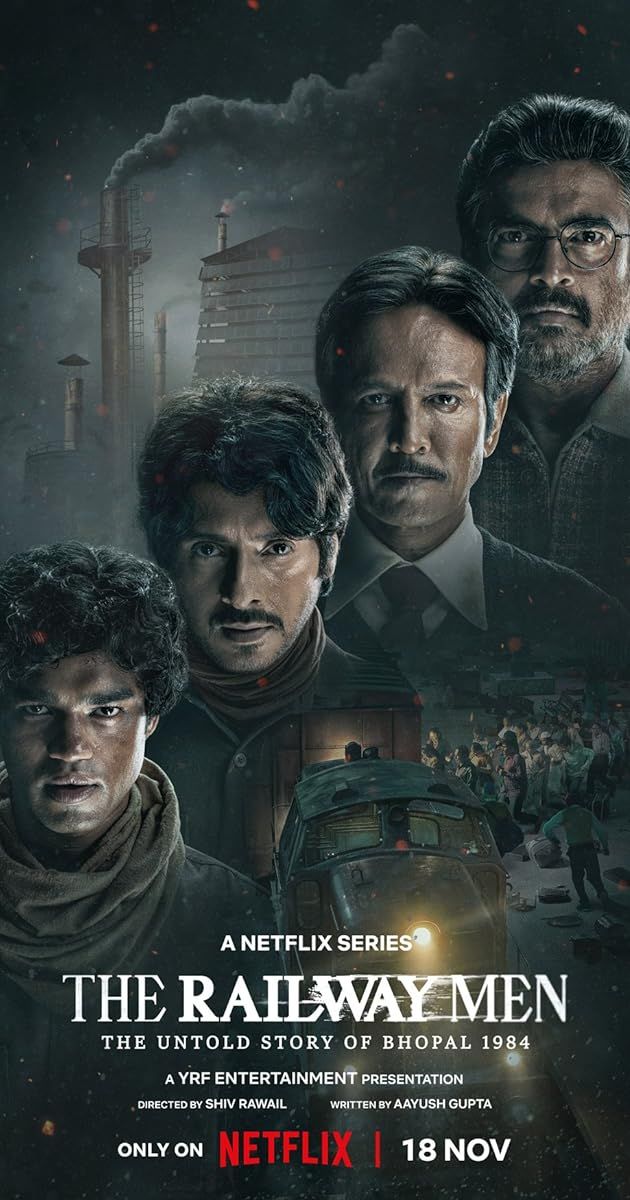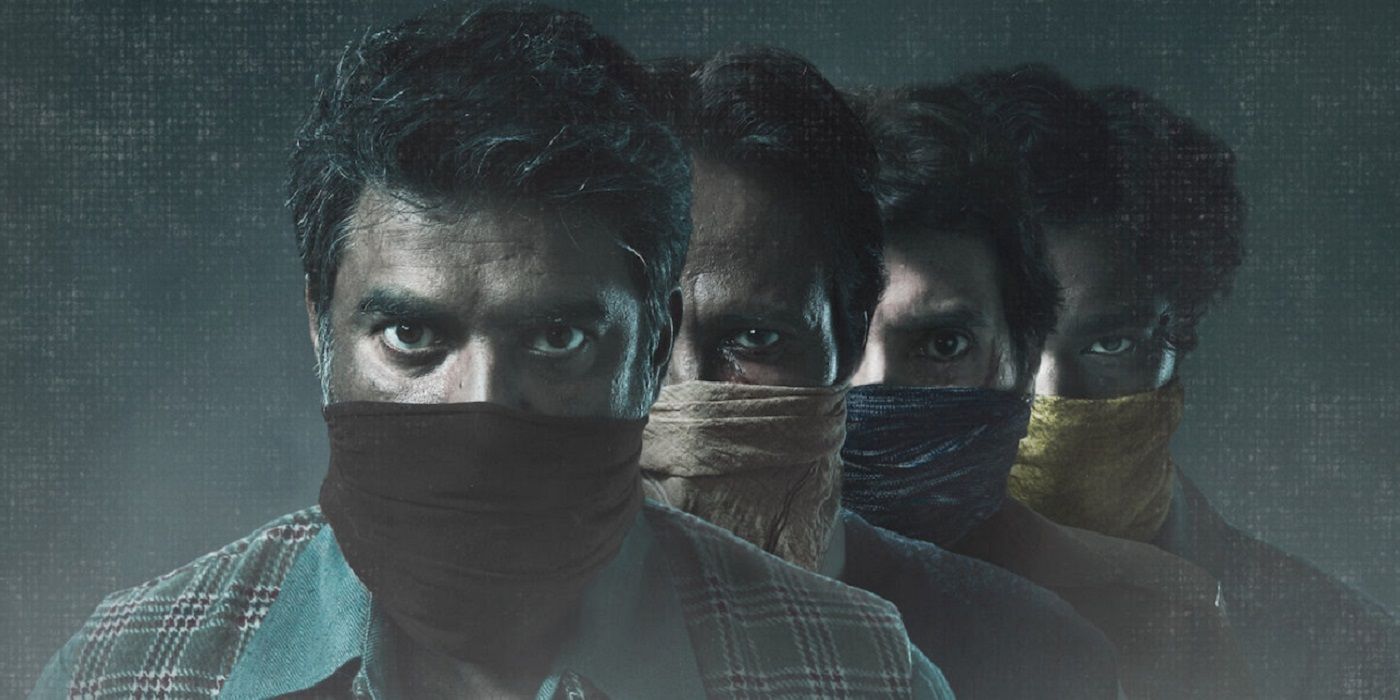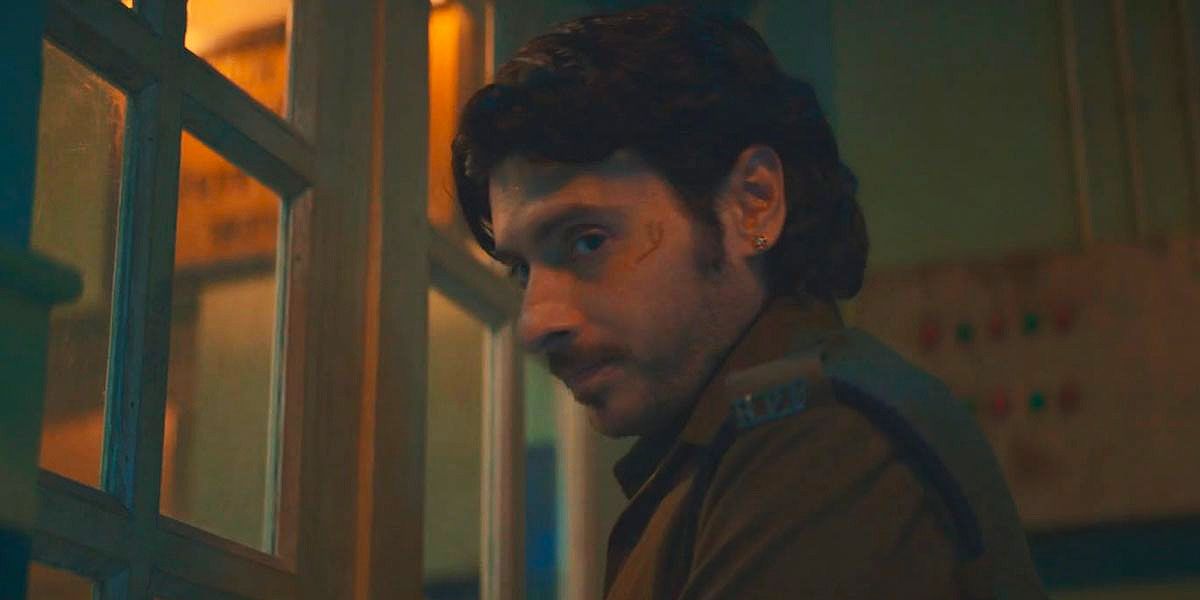The Big Picture
Similar to HBO’s Chernobyl and Netflix’s The Days, Shiv Rawail’s The Railway Men – The Untold Story of Bhopal 1984 on Netflix captures the horrifying nature of a tragedy, that eclipsed the “City of Lakes” Bhopal in Central India on a fateful day in 1984. Widely recognized as the world’s worst industrial disaster, as stated by The Atlantic, what came to be known as the Bhopal Gas Tragedy has claimed more than 15,000 lives ever since, according to official government statistics reported by BBC. While The Railway Men amply focuses on the tragedy and the circumstances that led to it, the series is inspired by the real-life efforts of a group of railway workers who came together on the deadly night of December 2, 1984, in a brave, collaborative effort to save thousands of lives from the deadly methyl isocyanate (MIC) gas leaking from the pesticide plant of the American company Union Carbide. The true story behind The Railway Men is a heroic tale of ordinary citizens coming to the rescue on a grim night when all pathways to safety seemed unreachable for the inhabitants of Bhopal.
The Railway Men takes off on the day of the tragedy, a few hours before the gas leak begins. In the initial parts of this four-episode limited series, the focus remains on the few characters, most inspired by real-life individuals, who play pivotal roles in the rescue efforts that follow once the tragedy hits. Along with the rescue attempt, the series also focuses on the lapses on the part of Union Carbide officials that led to the crisis in the first place and then the response of the authorities that worsened the situation.

After a deadly gas leaks from a factory in Bhopal, brave railway workers risk their lives to save others in the face of an unspeakable disaster.
Release Date November 18, 2023
Cast R. Madhavan, Kay Kay Menon, Divyenndu, Babil Khan
Creator Shiv Rawail
Streaming Service(s) Netflix
Bhopal Gas Tragedy Could Have Been Avoided
Before the large-scale gas leak took place in 1984, there were other events that served as a warning. Sunny Hinduja’s character Jagmohan Kumawat is inspired by the real-life journalist Rajkumar Keswani who had repeatedly thrown warnings about the impending disaster brewing within the Union Carbide plant, as stated by The New York Times. The Railway Men shows that Jagmohan was already looking into the lack of safety measures that led to the death of a worker three years ago. In the series, Irrfan Khan’s (The Namesake) son Babil Khan plays the character of Imad Riaz, a former worker for Union Carbide, a new loco pilot at the Bhopal junction railway station, and a friend of Mohammad Ansari, the worker who died back in 1981. In reality, according to The Washington Post, a worker named Mohammad Ashraf indeed died in 1981 when he was exposed to phosgene while cleaning a MIC unit. As stated in The Railway Men, the worker had raised concerns earlier regarding the faulty equipment he was working with.
At the Bhopal Union Carbide India Limited facility, three liquid MIC storage tanks were being used to contain the toxic chemical using nitrogen gas. One of these tanks, E610, had become incapable of containing the nitrogen gas within it, leading to a temporary halt of production for maintenance in October 1984. According to the findings by The New York Times, the workers discovered a leak on December 2, 1984, at 11:30 p.m. but the response was delayed due to the assumption that the leak was merely a water leak. It was then during an attempt by an untrained worker to wash out a pipe that had not been properly sealed that the MIC in E610 came in contact with water, resulting in a chain reaction that led to a pressure increase within the tank. By the time the employees returned from a tea break, the pressure had already reached an uncontrollable state and a crack in the concrete slab over the tank directly led to atmospheric venting of 40 tonnes of the toxic MIC gas, as reported by The Hindu. It is important to note here that apart from the untrained staff, the safety equipment was inadequate to report any leakages and enable preventive measures. Most of the safety measures were dependent on the limited staff stationed at the plant.
What Happened in the Aftermath of the Bhopal Gas Leak?
The lapses in prevention of the leak continued even after the leak was identified, similar to what’s portrayed in The Railway Men. According to Ingrid Eckerman’s 2004 book “The Bhopal Saga,” the local police reached out to the Union Carbide plant multiple times upon receiving reports of people fleeing their homes, but the plant workers assured them that the gas leak was not from the Union Carbide plant. As shown in The Railway Men, even the District Magistrate was told the same version of the story by the manager at the time. It was not until 3:00 a.m. that the Union Carbide officials confirmed that the leak had been plugged, but by then, the first deaths were already being reported. Most of the immediate victims included the local population living around the plant. According to WION, 3,800 people died within the first few days. Although the official numbers of affected people are still disputed, The Guardian suggests that an estimated 574,000 people were affected by the poisonous gas. Even nearly four decades later, the disaster continues to affect lives with gas-exposed victims showing a 28% higher mortality rate than average.
Undoubtedly, the death toll would have been way higher if not for the attempts of many people like Ghulam Dastagir, the deputy station master at Bhopal junction played by KK Menon in The Railway Men. In the miniseries, Menon’s character was shown to be the station master, but in reality, Dastagir was the deputy station master (via BBC). He came across the effects of the gas leak at 1:00 a.m. in the night. By this time, people had already started rushing to the station to escape the city. Thinking quickly on his feet, Dastagir ensured the early departure of the Gorakhpur Express to ensure that more people were not exposed to the lethal gas enveloping the city. Further, he also alerted his senior officials and surrounding stations to ensure that all trains heading towards the station were stopped immediately to avoid more deaths. The deputy station master’s actions ensured that paramedics and doctors were able to bring help as soon as possible.
The Railway Men takes some liberty while finding inspiration from real-life events and individuals related present in Bhopal at the time to provide a fictional version of the events. Some characters such as those of Babil Khan and Divyendu Sharma (who plays the role of a bandit aiming to rob the station’s locker) are figments of imagination, whereas others are inspired directly by brave citizens of Bhopal who tried reducing the impact of an otherwise catastrophic man-made human tragedy.
Although a case was filed against the Union Carbide Chairman Warren Anderson, he was never truly held responsible for the deaths resulting from the gas leak rooted in inadequate safety measures in place at the Bhopal plant (via WION). Upon his arrival in India, he was arrested briefly before being let out on bail. Despite being the subject of multiple non-bailable warrants by Indian courts over the years since the tragedy, Anderson never appeared before an Indian court until his death in 2014. The US government’s support to Anderson has been called out multiple times through various reports and leaks over the years (via The Guardian). Apart from an out-of-court settlement that resulted in a USD 470 million payout for damages caused in the Bhopal gas tragedy, eight Indian Union Carbide officials were convicted to 2 years in prison.
While The Railway Men does voice the frustration felt by the thousands of victims who feel undercompensated by the extent of justice served to them for enduring one of the worst man-made disasters in human history, it still maintains the majority of its focus on the great humanitarian spirit clearly visible through the actions of the individuals it’s inspired from. The latest Netflix miniseries captures the true story behind the efforts of a handful of individuals who decided the fate of thousands of others, who survived to live to tell the tale of the infamous Bhopal gas tragedy.
All episodes of The Railway Men are available to stream on Netflix.
Watch on Netflix








